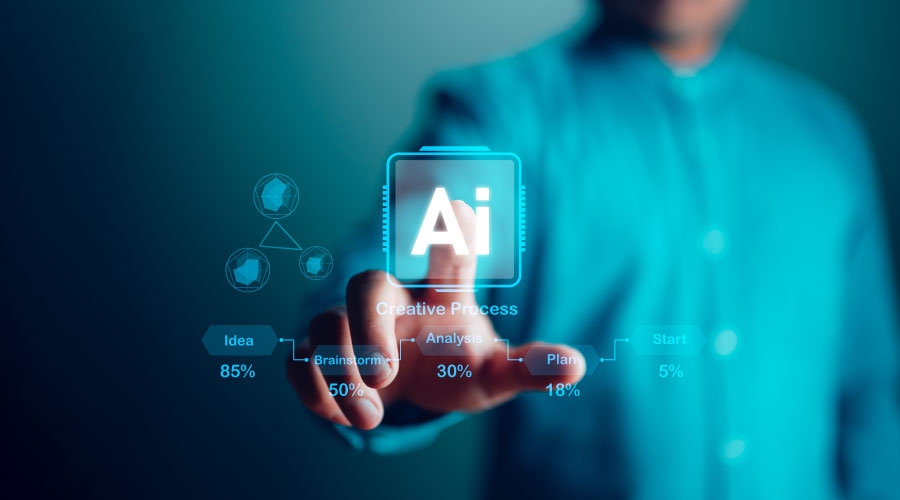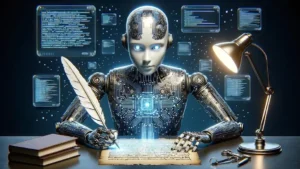Artificial intelligence (AI) is transforming many areas, making them more efficient and opening up new possibilities. But as AI technology continues to develop, it brings with it many societal issues that need to be addressed to ensure it is developed and used responsibly. These concerns include unfair treatment, privacy, unemployment, liability, abuse and the impact on society as a whole.
1. Prejudice and Fairness:
The issue of fairness and bias is one of the most important ethical issues in the development of artificial intelligence. Artificial intelligence systems learn from data. If the data they are trained on is biased, AI can reinforce or even worsen these biases. For example, an AI system used to hire people could unintentionally favor people from certain racial or ethnic groups if past training data shows bias. To solve this problem, we need to carefully study the data, use methods to detect and reduce bias, and ensure that artificial intelligence systems can make fair and unbiased choices.
2. Protect Your Privacy and Data:
Privacy and data protection are very important social issues in artificial intelligence. There are concerns about how this personal data is collected, used and secured as AI systems process large amounts of data. A major problem is data breaches and the possibility of people gaining access to private information without permission. Strong data protection practices, privacy compliance, and clear use of data are all priorities that developers should consider. People using AI systems need to have control over their personal data and know how it is used.
3. Unemployment:
Another important ethical issue is the potential for AI and automation to eliminate jobs. As artificial intelligence technology advances, it could take over household tasks that humans have done in the past. This has led to concerns about unemployment and the economy. While artificial intelligence can increase productivity and create new jobs, it is important to consider how this will impact unemployed workers. Programs such as reskilling and upskilling are needed to help people enter new roles and adapt to changes in the labor market.
4. Responsible and Open:
The accountability and openness of artificial intelligence decision-making methods are very important societal issues. AI systems can make choices that have a major impact on people, such as criminal justice or healthcare. For accountability, it is important to understand how these choices are made. Transparent algorithms and explainable AI can help people understand why AI makes the choices it does. To ensure that AI systems are used correctly and can address any issues arising from their use, clear accountability measures must be in place.
5. Improper Use of Artificial Intelligence Technology:
A major ethical problem regarding artificial intelligence is that it can be used for bad purposes. Artificial intelligence can be used for bad things, such as espionage, manipulation or creating fakes. When artificial intelligence is used incorrectly, it threatens privacy, security and social values. Developers and groups should consider what can go wrong with their technologies and take precautions to prevent people from misusing them. Establishing ethical standards and legal rules can help reduce the risk of misuse of artificial intelligence and encourage responsible use of technology.
6. Impact on Society:
Because AI technologies can change social norms and ideals, it is important to consider the impact they have on society as a whole. AI systems can change people’s behavior and beliefs, so ensuring they follow ethical guidelines is important to support good social outcomes. By talking to many different people, such as ethicists, politicians, and community leaders, you can better understand how AI technologies impact society and help advance social values.
7. Keep Talking and Working Together:
Considering ethical issues when developing artificial intelligence requires constant communication and teamwork between multiple parties. Discussions about the ethical implications of artificial intelligence should include many different perspectives so that development can be more informed and responsible. Developing and following ethical guidelines and frameworks will help people deal with the issues that artificial intelligence brings and ensure that technology works for the greater good.
Conclusion:
It is important to consider ethics when developing artificial intelligence so that it can be used properly and benefit society. To develop and use artificial intelligence responsibly, we need to discuss issues of bias, privacy, unemployment, liability, abuse and the impact on society. By keeping these ethical issues at the forefront and encouraging ongoing dialogue, we can work towards a world where AI technologies are ethical and good for society.
FAQs:
1. Why is it important for AI to be open when making decisions?
It is important that AI decisions are open and clear, so that everyone understands how the system makes its choices. Transparent algorithms and explainable AI help ensure fairness and accountability for AI decisions. Understanding why AI makes the choices it does is important to address issues that may arise and ensure that AI systems behave in a responsible and ethical manner.
2. What are some bad ways to use artificial intelligence technology?
Artificial intelligence can be used for bad reasons, such as spying on people without their consent, changing people’s minds, or creating deepfakes that spread misinformation. Privacy, security and social norms are all at risk due to the potential for abuse. Developers and organizations should be aware of these risks and take steps to prevent misuse of AI technology. For example, they can establish ethical standards and regulatory frameworks.
3. How do artificial intelligence systems change social rules and ideals?
Through applications and interactions with humans, artificial intelligence systems can change social norms and values by changing the way people behave, think and perceive things. For example, AI-driven content suggestions on social media can change public opinion and cultural trends. It is important to ensure that AI technologies are ethical and help uphold the good values of society. Talking to many different people can help you understand how AI technology is impacting society as a whole.
4. What role does ongoing dialogue play in talking about the ethics of artificial intelligence?
Frequent conversations are important for dealing with ethical issues in artificial intelligence because they encourage developers, ethicists, journalists and the public to work together. Talking about the ethical issues that artificial intelligence raises can help identify and resolve potential problems, create useful guidelines, and ensure that artificial intelligence technology is used correctly. To address the problems and opportunities of artificial intelligence, people must constantly talk and collaborate with each other.
5. How do programmers ensure that the AI systems they create follow ethical rules?
By considering ethics during the planning and development process, developers can ensure that their AI systems meet ethical standards. This means dealing with issues of bias, privacy, responsibility and openness. Developers should also discuss the ethical issues their technology raises with ethicists, politicians and other stakeholders to understand and address these issues. Following established ethical standards and frameworks can help ensure that AI systems are built and used responsibly.



